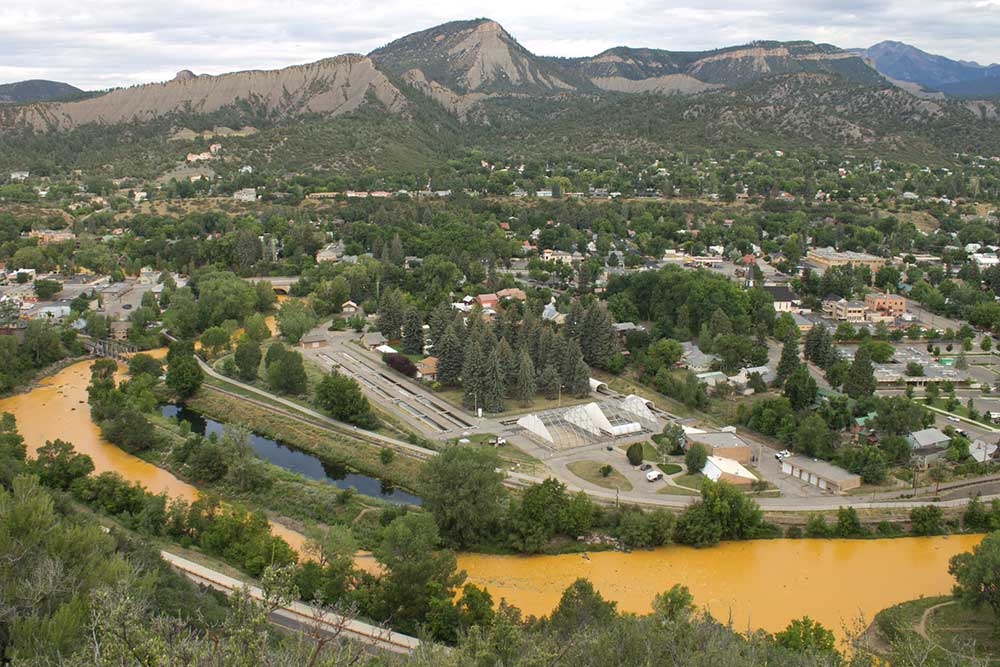This article was originally published in the Salt Lake Tribune.
In 2015, the Animas River in Colorado turned orange as three million gallons of water containing high concentrations of heavy metals and other toxins gushed from a site where the federal Environmental Protection Agency (EPA) was attempting to clean up an abandoned mine.
The agency’s immediate response was a near-complete failure: officials delayed disclosing the spill to the public for nearly 24 hours; they significantly underestimated the size of the spill; and they downplayed the potential harms. A year later, a House Natural Resources Committee report lambasted the agency’s handling of the massive spill, accusing it of failing to take reasonable precautions, not responding adequately, and obstructing Congress’ efforts to investigate.
New Mexico, Utah, and the Navajo Nation sued EPA to recoup their costs of mitigating the spill’s ill effects. Last month, a federal court in New Mexico rejected the agency’s effort to dismiss that suit, holding that the agency can be liable for the spill, just as any private party would be.
Although the prospect of EPA paying for the damage may seem fair in this case—especially if the congressional report’s accusations are true—the court’s rationale underscores why so little progress has been made in cleaning up abandoned mines. The court did not cite EPA’s alleged negligence in determining the agency’s potential liability. Instead, the agency could be on the hook for the mere fact of trying to clean up the mine in the first place.
In this respect, EPA was treated no differently than ordinary people, who routinely face crippling penalties for innocent mistakes. Many environmental laws take a “strict liability” approach to imposing fines and even criminal penalties, meaning fault and intent are irrelevent. In theory, this makes it easier to punish truly bad actors. But, often, it means innocent landowners or environmental do-gooders can be punished severely, even if they did everything right.
Under the Clean Water Act, for instance, the EPA has threatened landowners with massive fines, accruing at a rate of $37,500 per day, for perfectly innocent activities. This includes Wyoming’s Andy Johnson, who faced nearly $20 million dollars in fines for building an environmentally beneficial pond to water his horses—all because he did work on his property without asking the agency’s permission first. In a strict-liability world, there will be lots of Andy Johnsons.
It is one thing to hold someone responsible when their negligence causes environmental harm. But, too often, strict liability deters people from taking steps to improve environmental outcomes.
That’s the case for abandoned mines, where the threat of massive liabilities discourages any would-be good Samaritan from remediating pollution. As Chris Wood, the president of Trout Unlimited, and Mitch Krebs, the president of Coeur Mining, recently explained in a Denver Post op-ed, “[a]s written, the law for abandoned mines is if you touch it, you own it.” In other words, anyone who tries to clean up an abandoned mine must accept complete responsibility for it.
Poorly designed incentives have led to a considerable environmental problem. There are thousands of abandoned 19th-century mines in the United States leaking pollution into streams and groundwater. In many cases, the individuals or companies responsible are deceased, dissolved, or bankrupt—and have been for decades. The cost to remediate these sites may be as high as $50 billion dollars.
If the responsible parties are long gone, who’s going to pay for this clean up? So far, the answer has been a clear, and disappointing, “no one.” The federal government does some of this work under EPA’s Superfund, but the program lacks the resources to address the full scope of the problem. Conservation groups, communities, and industry would like to pitch in too, but can’t justify taking on the liabilities.
The Western Governors’ Association has urged Congress to enact “Good Samaritan” laws to encourage voluntary cleanups by shielding those undertaking them from this counterproductive liability threat. Several bills have been proposed in recent years to make this change and have generated bipartisan support.
This is a sensible change. Environmental laws should discourage environmental damage and encourage environmental improvement. When they fail this test, they should be reformed. Imposing massive liability on groups that want to clean up a persistent source of pollution clearly fails that test.
In fact, there’s a broader lesson to be learned here about environmental regulation. Too often, we rely on heavy-handed and punitive regulations without considering the incentives for the well-intentioned. What’s needed is a free-market approach that encourages the clean-up of polluted sites, restoration of species habitat, and technological innovations that reduce environmental impacts.




